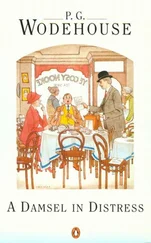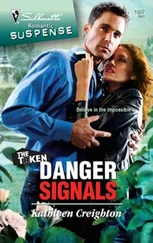Jim Crace - Signals of Distress
Здесь есть возможность читать онлайн «Jim Crace - Signals of Distress» весь текст электронной книги совершенно бесплатно (целиком полную версию без сокращений). В некоторых случаях можно слушать аудио, скачать через торрент в формате fb2 и присутствует краткое содержание. Год выпуска: 2008, Издательство: Picador USA, Жанр: Современная проза, на английском языке. Описание произведения, (предисловие) а так же отзывы посетителей доступны на портале библиотеки ЛибКат.
- Название:Signals of Distress
- Автор:
- Издательство:Picador USA
- Жанр:
- Год:2008
- ISBN:нет данных
- Рейтинг книги:3 / 5. Голосов: 1
-
Избранное:Добавить в избранное
- Отзывы:
-
Ваша оценка:
- 60
- 1
- 2
- 3
- 4
- 5
Signals of Distress: краткое содержание, описание и аннотация
Предлагаем к чтению аннотацию, описание, краткое содержание или предисловие (зависит от того, что написал сам автор книги «Signals of Distress»). Если вы не нашли необходимую информацию о книге — напишите в комментариях, мы постараемся отыскать её.
'The passions and mores of the 1830s are flawlessly delineated in this masterly novel, imbued with the tang and power of the sea' "Independent".
Signals of Distress — читать онлайн бесплатно полную книгу (весь текст) целиком
Ниже представлен текст книги, разбитый по страницам. Система сохранения места последней прочитанной страницы, позволяет с удобством читать онлайн бесплатно книгу «Signals of Distress», без необходимости каждый раз заново искать на чём Вы остановились. Поставьте закладку, и сможете в любой момент перейти на страницу, на которой закончили чтение.
Интервал:
Закладка:
When Sunday came, despite Mr Phipps’s disapproval, the work continued on the Belle . ‘You will bring God’s damnation down on the ship,’ he warned. ‘Betray the Lord’s observances and you will pay the price.’ But Walter Howells thought God had all Eternity for His observances, and Sabbaths till the end of time, while he had promised Captain Comstock that the ship would sail at high tide on the Tuesday morning, November the 29th, 1836. That was a day that wouldn’t come again. To start the voyage in December, when the sea was at its most unforgiving and the polar ice was sending its outriders south, would be a day too late. It had to be the Tuesday, Comstock said, or it would be next year. So Howells had every hand on deck, tarring timbers, knotting canvas, dislodging barnacles. Most of the Wherrytowners wouldn’t work, of course, not even for the extra fourpence on the day. The Americans might leave on time, they judged, but Preacher Phipps would not. And his memory was long and unforgiving. They didn’t want to find themselves made to stand outside the chapel walls, or be buried on the common land without a prayer or hymn, or be told their sons and daughters couldn’t marry on holy ground. They went to all the Sunday services and made certain they were seen and heard. But there were some who thought it worth the fourpence to risk a stay in Purgatory and help out with the ship. Palmer Dolly, for example. Some of the coastal fishermen, who lived outside Mr Phipps’s rule. Together with the sailors, there were more than twenty men. When the chapel foghorn was blown for matins, the hammers on the Belle called back and didn’t stop for prayers.
Walter Howells couldn’t ride his horse down companion ladders nor canter between decks. He had to swagger on his feet, directing what repairs should be completed, often as not with unseasoned, shrinking wood and cordage that was badly chafed. He pointed out what minor leaks or springing planks or damage from marine worm should be disguised with gobs of tar, or battened down with strips of wood. The Dolly boy, he had discovered, would do what he was told, no questions asked. Howells worked him all the time. That … Palmer? Was that his name? … might prove to be a useful man in future. Palmer had asked Walter Howells to recommend him to the captain. The boy wanted, it would seem, to be a sailor and go off to America. But Howells considered him too handy and too willing to lose so soon. He needed him in Wherrytown. He’d warn the captain that Palmer Dolly could not be trusted. Light-fingered, maybe? Clumsy? Daft? The captain wouldn’t want the risk. Who’d ever know? Who’d ever learn the truth?
That afternoon, when dusk had put a stop to work, Palmer Dolly did ask the captain for Nathaniel Rankin’s place. He was, he said, a willing hand, and strong, and young, and used to boats. He’d been the one, he reminded the captain, to bring the dead sailor ashore. No one had worked harder on the Belle . Surely Captain Comstock had seen him work? But it was too late. Walter Howells had already said the boy had fits. They couldn’t take a boy with fits on board. The captain shook his head, ‘No, sir. Your place is here, amongst your own,’ and went to spend his last night at the inn in Alice Yapp’s good care.
That Sunday night, they all sat down again to pie. Not squab. Not star-gazy. But good beef pie. One of the cattle in the dunes had ‘died’, and Walter Howells had given the flank to Alice Yapp. She’d pay him back somehow, when her captain had departed. Again, the young Americans were sitting at the softwood trestle in the Commercial, raucously excited by the prospects of their voyage home, the wives and lovers they might see in the New Year. They envied Ralph. He would be the first to have a woman in his arms.
The large oak table in the parlour was a squeeze. There were two extra places set. Mrs Yapp and Walter Howells wouldn’t miss out on beef. They sat with Captain Comstock by the parlour fire. Only George didn’t have a knife and plate. He had to serve. And only Otto wasn’t there.
‘Not pie again!’ said Aymer Smith, down at the cold end of the table with the Norrises.
‘It’s always pie,’ said George. ‘Be glad of it. That’s why the Devil never comes to Wherrytown. For fear we’ll put him in a pie.’
At this, John Peacock took up his fiddle and played the Devil’s Jig at George’s shoulder, serenading every steaming plateful in the parlour. When George placed the servings for the Norrises on the table, John Peacock put down his fiddle and sang in Robert’s ear:
‘Put the Devil in the pie,
Hot coals, hot coals,
Put the Devil in the pie,
Hot coals hot.
Dish the Devil to your wife,
Hot coals, hot coals,
Dish the Devil to your wife,
Cut his tail off with a knife,
Run away to save your life,
Hot coals hot.’
Katie hoped that Canadians would prove to be a little more self-conscious than these Americans. The fiddler had almost put her off her meal. She didn’t like the way the beef had whistled when George had spooned it on her plate. She didn’t like the way that Aymer Smith was watching her, as if she had the Devil’s gravy on her chin.
Elsewhere in Wherrytown, the more observant families had already finished their pies and had climbed the lanes to chapel. The Norrises wouldn’t go. They couldn’t condone the preacher’s fierceness at the funeral.
‘Master Sacrilege and his bloody uncles, Mr Cant, Mr Sin and Mr Cynicism,’ Preacher Phipps told his smallest congregation for more than a week in his toughest — and most alliterative — sermon of the year, ‘are not amongst us with the Lord this evensong. They do not hear the Sabbath’s holy horn. They do not lay their cups aside, they do not hand their hammers down, they do not pause in their profanities. These gentlemen and their dark friend are not content with building Pandaemonium for six days of the week, and doing Devil’s work amid our harbours and our homes, amongst our barley and our beans. Now Master Sacrilege is roaming free in Wherrytown and he is intent on breaking up the one day in the week when we can give our thanks unto the Lord, Amen. These freethinkers, the Devil at their side, are lodged in Wherrytown and they are labouring against the Lord our God and His Observances.’
His congregation couldn’t think where the beans and barley were. The best they had was thistle-rye. But they enjoyed this sermon more than most. It cracked with piety and spleen. And it was thinly coded. They could tell whom Preacher Phipps was lamming from the pulpit — anyone who hadn’t come to chapel. He thrashed the sailors and the Sabbath-breakers. Master Sacrilege was ‘surely’ Agent Howells (the preacher’s most long-standing foe). And that dark stranger doing Devil’s work was, no doubt of it, the African. The congregation was, for once, excluded from his disapproval. It was a happy sermon then. They couldn’t wait to sing.
So when Mr Phipps called the first note of the hymn, the congregation did its best. They sang more loudly, more zealously, more fearfully than they’d sung for weeks. They sent the African away with verses beating at his ears. They drove him back to Hell with choruses. This was their battle hymn. They’d save their daughters and their chickens from the Devil’s work with euphony. They’d scarify the night with noise. Their voices could be heard at sea. But Mr Phipps was not entirely pleased. The hymn seemed thin. So did his flock on that chilling Sunday night. He should have been elated. He was not. He missed the finest voice. He missed the finest head of hair.
When Mr Phipps’s flock departed for their beds, his eyes were fiery at the chapel door. His goodnight handshakes were hard and purposeful. And unforgiving. But the preacher’s fires were dull. He was cold inside. He put the chapel candles out and went back to the chapel house. Usually he was proud of the simplicity of his two rooms, the hardness of his bolster, the bareness of his unplanched floor, the plain wooden cross, the water in the jug. He wasn’t lonely with the Lord as his companion. How could he be? That was the choice he had made when he was only seventeen, that he should embalm himself in God. But today he hoped the Lord had not been his witness, had not heard him preach so icily, and did not see him now retrieve the brandy bottle from its hiding place. He warmed his teeth and chest on it. He said his prayers. He could not sleep. His sermon haunted him. Had it been too venomous? It had, it had. It had no warmth, no Christian charity. It was not kind. He was a snake, he thought, a hornet. No wonder people flinched when he shook hands with them. No wonder Katie Norris had not come to chapel. He warmed his teeth again. He was used to dealing with self-pity. He lay, fully clothed, on his bed. He dreamed up better times in Wherrytown; he made amends. He and the Norrises — and even Mr Smith — were spending pleasant evenings in the chapel house. They made a decent four at whist. He called them by their Christian names. They called him John. They put the world to rights over cups of tea. They lodged with him, and somehow he refrained from feeding them on Buttered Tracts or Bible Soup or Hebrewed Ale, or dishing up the Word Made Flesh for supper. And Katie, Robert, Aymer, John were fond companions for the night.
Читать дальшеИнтервал:
Закладка:
Похожие книги на «Signals of Distress»
Представляем Вашему вниманию похожие книги на «Signals of Distress» списком для выбора. Мы отобрали схожую по названию и смыслу литературу в надежде предоставить читателям больше вариантов отыскать новые, интересные, ещё непрочитанные произведения.
Обсуждение, отзывы о книге «Signals of Distress» и просто собственные мнения читателей. Оставьте ваши комментарии, напишите, что Вы думаете о произведении, его смысле или главных героях. Укажите что конкретно понравилось, а что нет, и почему Вы так считаете.












